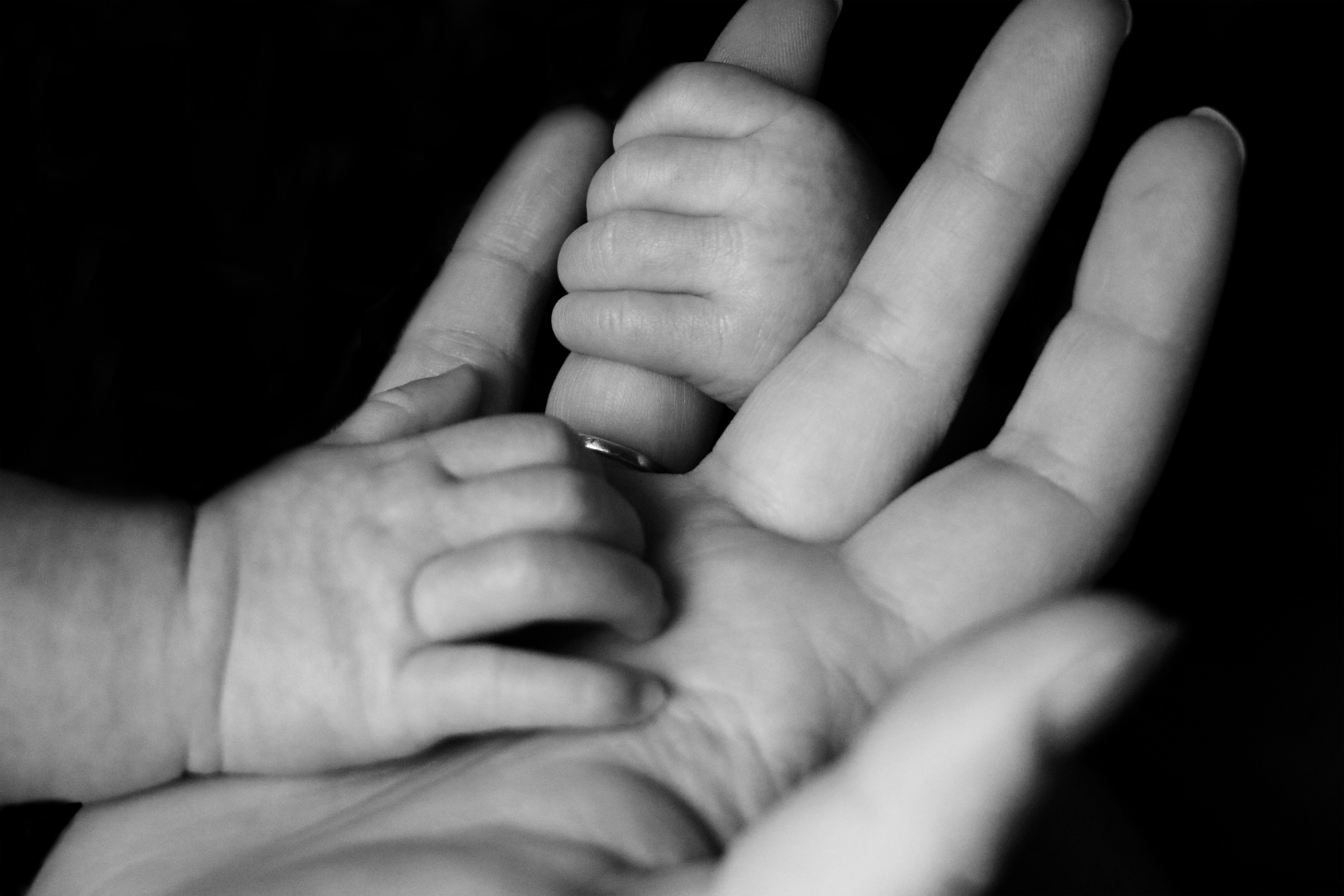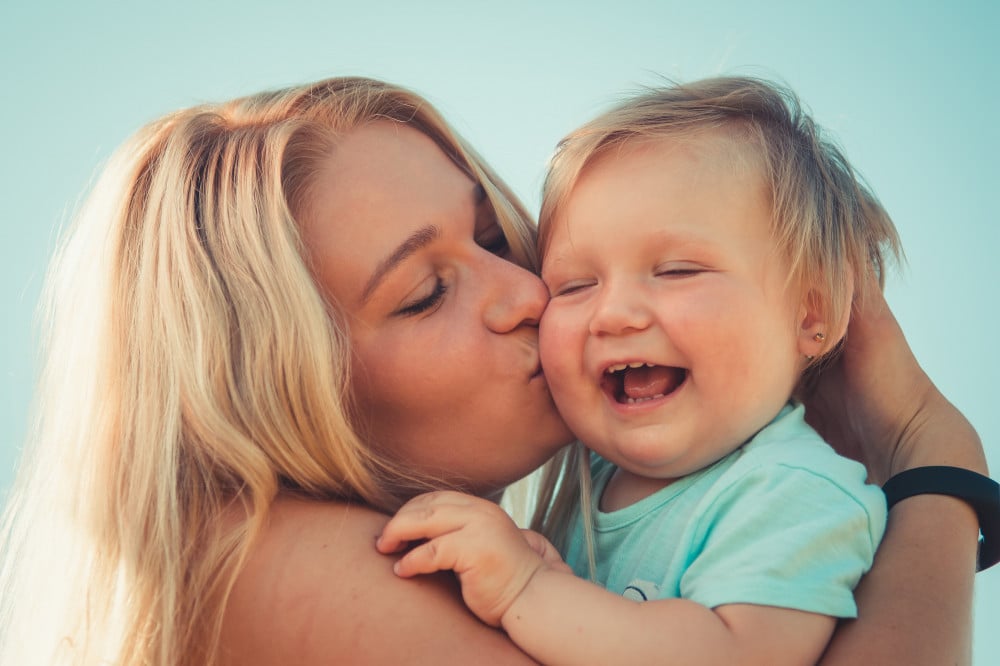Stages of speech development for children

Speech development from birth to three months of age
- At this stage, your child will respond by turning and looking at different sounds, such as the sound of you and his father when you talk to him, or the sound of the doorbell or the sound of infant toys.
Then the child at this age also begins to respond by smiling, making sounds of laughter and babbling, and crying as well. The sounds that the child makes at this stage are characterized by many vowels, and some other letters as well, in addition to trying to make two-syllable sounds and words.
Perceptually, the child will begin to follow the mouth of the person he is talking to and look into his eyes.
At this age, make sure to talk to your child constantly and sing quiet songs to him so that he gets used to hearing your voice and hearing different words. You can also read books for babies that are rich in easy pictures and sounds.
Speech development from four months to six months
- At this age, you will notice that your child turns more when he hears your voice, or hears any other sounds.
Your child will also start turning around when hearing his name, as he is used to hearing it more than other words.
- The child can laugh out loud, make sounds expressing his happiness, and utter clear syllables.
Babies at this age use different pitches of their voice as a kind of test and to see what sounds they can make.
Teach your child the names of things by placing them in front of him and repeating their name clearly. Do not expect your child to repeat what you said immediately, but this stage is a good start to teach the child different words.
Speech development from the age of seven months to the age of one year
You will notice that at this stage of your child's life, he will begin to pay more attention to the melodies of music and the sounds of singing. He will show more interest in pictures, especially if they are pictures of people he knows.
Your child will also respond to some verbal commands, especially if they are accompanied by movements such as saying bye bye and waving the hand when leaving the place.
- Your child will try to utter sentences that contain many syllables, even if they are incomprehensible. At this stage, he is trying to imitate adults and the way they speak.
-You will notice that your child imitates your tone and intensity as well, so he will imitate you when you whisper, or when you speak out loud.
Repeat words and songs accompanied by movements in front of your child, and encourage him to imitate you in order to pronounce clear words and syllables. This exercise is very useful for activating his language skills and other cognitive and educational skills.
Speech development from the age of one year to the age of one and a half years
- By the age of one year, most children can utter some clear, short words. Like Papa, Mama, Tata, Num Num and Bye.
By the age of one and a half, most children can pronounce fifteen intelligible words.
- The child begins at this stage by asking for more food, and referring to pictures of things when hearing their name, or when wanting to obtain them. So when your child points to a glass of water, don't give it to him directly without making a short conversation to develop his language skills. Ask him, "Do you want a cup?" Point to the cup and repeat the word several times. Then ask him yes? And make a nod with your head indicating the answer so that your child gets used to associating this gesture with the word yes.
Children of this age also begin to imitate different sounds and tones, so they can express happiness and anger by changing the tone of their voice.
Arrange meetings for your child with children of his age, on an ongoing basis. Meeting children of his age will encourage him to do more communication, use words, and train understanding and listening skills in a healthy way. Also, make sure, in the different stages of your child's development, to encourage him to speak and give him your encouragement when he pronounces new words correctly to some extent.
Speech development from the age of one and a half to the age of two years
Children of this age love games and songs that contain balanced syllables.
Children at this stage are also keen to display what is theirs, in addition to uttering words that express themselves and their possessions, such as me and this is mine.
By the age of two, a child understands between 200 and 300 words.
Most children, by the age of two, can name their objects and different parts of their bodies, and use signs and pronouns.
Children love songs and music clips from books and plays. Therefore, use these things to enrich your child's vocabulary, improve his pronunciation, and develop his various language skills, in an interactive and effective manner, to ensure the best results in improving your child's speech skill.
Signs of delayed speech in children
Remember that every child is unique, and your child's growth and development of skills differs from that of other children his age. So don't worry if your child is late for your friend's son, or for his colleagues in the nursery. Learn about some of the signs that may require you to consult a pediatrician to check on the development of your child's language skills.
If he doesn't do these things by the age of one, talk to your pediatrician for further evaluation:
- If the child does not say the word mama or papa.
- If the child does not use signs such as waving or nodding the head with acceptance or rejection, or the child does not point to the things he wants.
- He does not pronounce or try to repeat some correct letters such as the letter Baa and Mim.
- Doesn't respond to the word no or the phrase bye.
He does not point to something that interests him, such as a plane in the sky or a toy.
He doesn't make sounds as if he's trying to speak.
He does not utter single words by the age of fifteen months.
If he does not do these things by the age of one and a half years, consult a doctor:
He does not refer to at least one part of his body when naming it in front of him.
Doesn't try to communicate with you when he wants or points to something.
He does not utter at least six words.
Get a professional opinion if your child has not developed the following skills by the age of two:
- He does not increase his vocabulary, which he uses at the rate of one word each week.
Doesn't respond to simple commands like, "Sit down, or come here."
He does not imitate the actions and words of others.
He does not refer to the pictures of things in books when he hears their name.
- Cannot connect two words together to pronounce a clear sentence.
Does not distinguish the uses of everyday objects such as a spoon or toothbrush.
Do not become anxious and afraid for your child, if he shows any of these symptoms. It may surprise you the day you go to see the doctor when you take all the steps expected of him in his life. But a little more reassurance certainly wouldn't hurt. Even in cases of delayed speech in children, it has been proven that early intervention and treatment of the cause of the delay at a young age has positive results in most cases.

